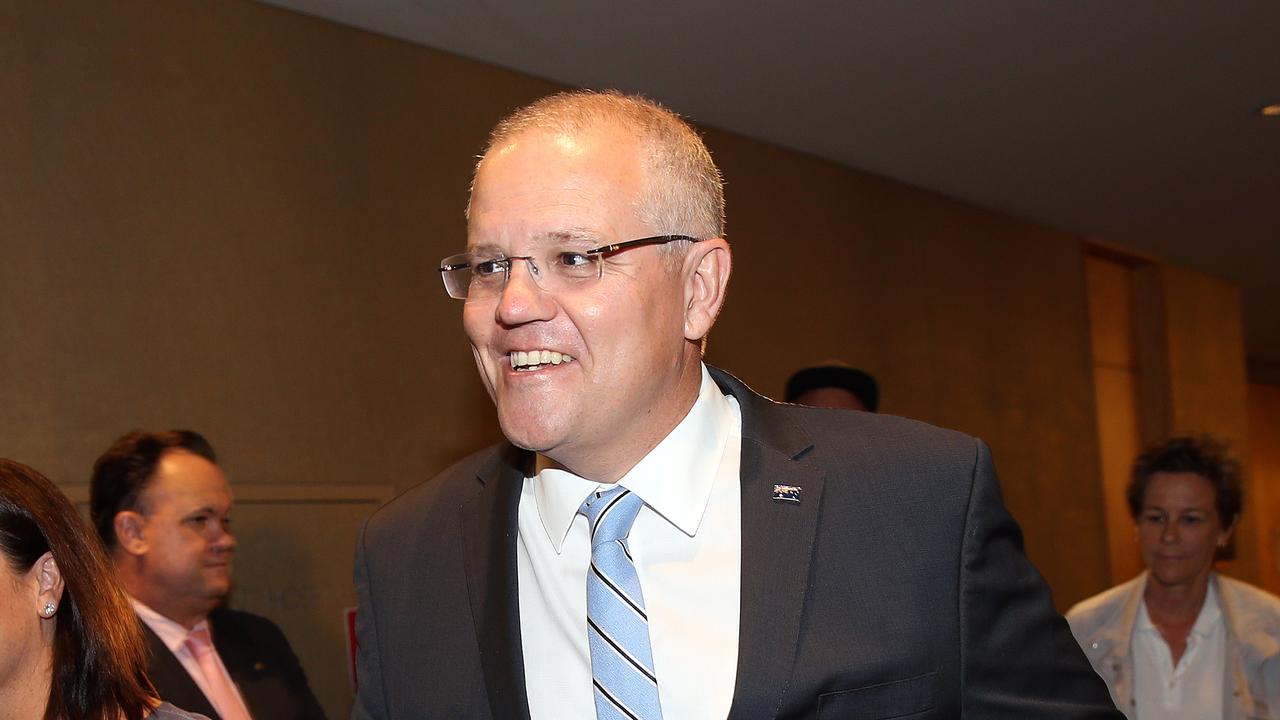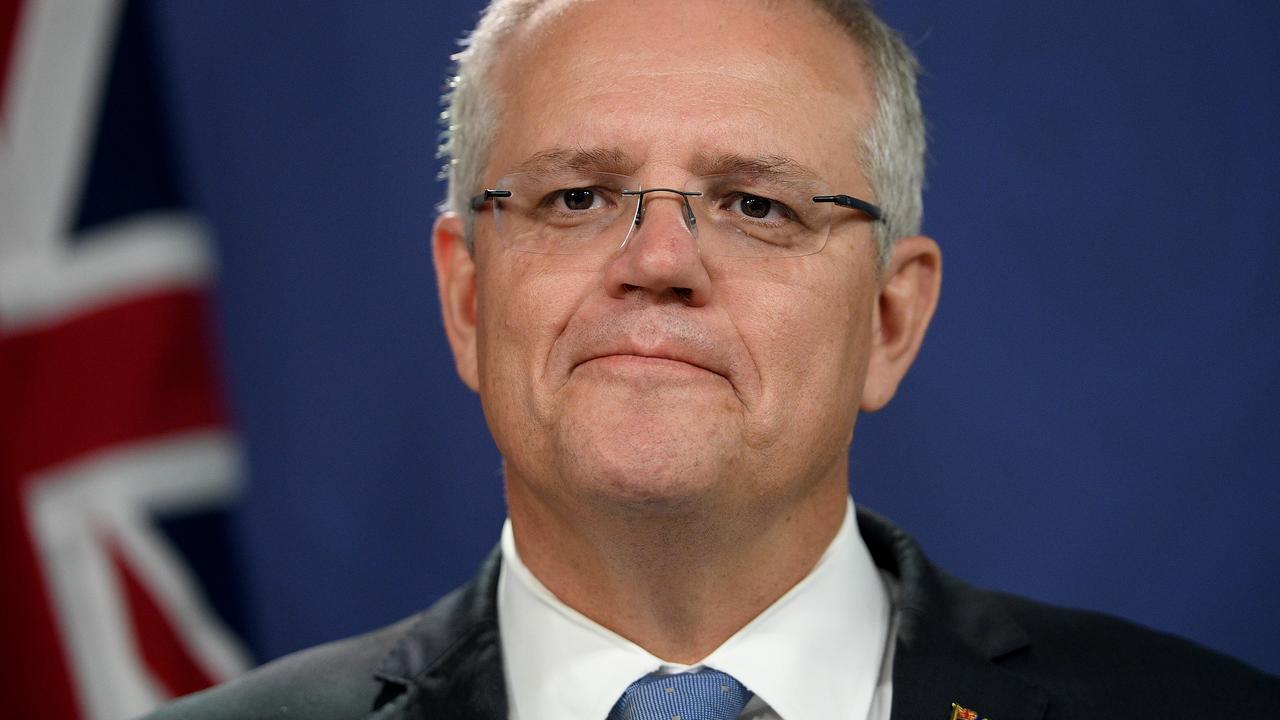
Tony Abbott ended this week looking truly prime ministerial and being credited with compassion by many who have accused him of lacking leadership and being heartless.
The Prime Minister managed two momentous decisions — the acceptance of 12,000 extra refugees from Syria for permanent residency in Australia and the extension of airstrikes against Islamic State strongholds across the Iraqi border — with good process, consultation, including the opposition, and managing competing community interests.
As a result of these actions Australians will be contributing proportionately more than many other nations to ease the terrifying burden on the millions of people who have fled a nation racked by civil war, political turmoil and the foundation of a barbarous terrorist cult.
The 12,000 refugees who will be accepted during the next year to 18 months will be on top of the normal annual humanitarian intake of 13,750, and in addition to the 8000 refugees Australia has taken in the past two years from Syria and Iraq as the crisis has grown.
Barack Obama yesterday called for the US to take more refugees from Syria next year — an increase of 7500 from the existing 1500 intake — and David Cameron has said Britain will take 20,000 extra Syrian refugees between now and 2020.
Yesterday Abbott attended a meeting of resettlement groups and community, church and faith leaders to reassure them of Australia’s commitment to take people from persecuted minorities in the unprecedented extra intake.
In announcing the one-off intake and $44 million more in aid, Abbott said: “It’s important that we act with our head as well as with our heart here. I really do want to stress that, and while I think we are all in the grip of grief, really, as we saw the tragedy unfolding on our television screens, the responsibility of government, the responsibility of prime ministers in particular, is to act in a measured and considered way and I didn’t want to rush.”
Australia’s decision to extend its military commitment — with six Hornet fighters, a refuelling plane and a surveillance aircraft — in Syria to assist US-led coalition forces in attacking Islamic State, also known as Daesh, also was handled appropriately and received without furore.
“There can be no stability and no end to the persecution and suffering in the Middle East until the Daesh death cult is degraded and ultimately destroyed,” Abbott said.
“That’s what our armed forces are doing in Iraq and we need to do it in Syria, too. As we all know, Daesh does not respect borders and its onslaught in Iraq is supported from bases in Syria. We cannot defeat Daesh in Iraq without defeating Daesh in Syria, too.”
It has been possible to put in place all these compassionate and appropriate measures only because of Abbott’s previous determination, his commitment to sensible but unpopular policies, and his refusal to allow ridicule or populist attacks to deter him.
What was seen this week as some sort of sudden change in Abbott’s character, attitude or leadership was the result of long-term commitment and delivery of good policy despite rancorous, opportunistic and hateful attempts to defeat or destroy him.
Australia’s capacity this week to offer a permanent haven — not the temporary protection offered to 4000 Kosovars in 1999 — for Syrian refugees is a direct result of Abbott fulfilling the promise encapsulated in his much-maligned slogan of “stopping the boats”.
Practically and politically, it would have been impossible for the Rudd or Gillard Labor governments to have made such a decision because the loss of control over our borders and the ascendancy of people-smugglers meant the system could not have absorbed the numbers; besides, public faith in the immigration intake was broken.
This week Abbott was able to act compassionately because there was space within the system and public faith had been restored. He had to react quickly but also had to ensure community concerns about the continued integrity of Australia’s borders and infiltration by jihadists were addressed.
Abbott’s initial false step in suggesting any increase in the Syrian refugee intake would have to fall within the existing humanitarian cap of 13,750 was quickly reversed and trumped Labor’s call for 10,000 people to be taken, because he had the capacity to do so.
The latest immigration figures to 2014-15 starkly tell the story of how illegal boat arrivals and people-smugglers were distorting Australia’s refugee intake, as the numbers of people who were sponsored or eligible for family reunions were reduced to accommodate those who arrived by boat.
In 2013, when the number of illegal boat arrivals in Australia peaked at 302, the number of people included in the 2012-13 humanitarian intake from illegal boat arrivals reached 4949, swamping the family reunion intake which dwindled to a low of 503 people.
Last year, when there was one boat arrival, the humanitarian intake for family reunion and sponsorships was 5007 and the intake from boat arrivals was just one.
Bill Shorten and opposition immigration spokesman Richard Marles were quick to congratulate the Coalition on the new measures and offer full bipartisan support.
The Opposition Leader had started the bidding at 10,000 Syrian refugees and $100m in aid but did not find fault with the government’s response, particularly after Abbott made it clear the priority attached to refugees from persecuted minorities, who could never return to their homes, covered Christians as well as Muslims, and that the aim was to get them to Australia as soon as practicable.
But amid all the acts of compassion Abbott also ensured that Australia’s hard-won victory over people-smugglers, which ended the drownings at sea on journeys between Indonesia and Christmas Island, would not be jeopardised.
He made it clear, correctly, that Australia would not allow Europe’s fractured and faltering response to the refugee crisis across the Mediterranean to undermine its efforts.
The Australian refugee intake would be selected from camps outside Syria’s borders in Turkey, Lebanon and Jordan, and would not include those who had paid European people-smugglers or who attempted to come to Australia from Syria via Indonesia.
Speaking in Papua New Guinea’s capital Port Moresby, Abbott said: “What we are doing is sending our immigration teams to the region to ensure that people who have been displaced are given the opportunity of permanent resettlement in Australia — people from persecuted minorities who will never have any realistic chance of going back.
“There is a world of difference between people in that situation and people who have done a deal with people-smugglers to go way beyond the country of first asylum.
“We will never ever do anything that encourages the evil trade of people-smuggling and all of those who have come to Australia by boat are here as a result of people-smuggling — and this is the self-same trade which resulted in the deaths of more than 1000 people at sea in the waters to our north and has currently resulted in the deaths of perhaps many, many more thousands in the Mediterranean,” he said.
Marles, the latest in a line of beleaguered Labor immigration policymakers who have had to try to impose a logical policy on a party that refuses to fully embrace the need for tough political decisions and lacks the political will to implement those policies, backed Abbott to the hilt.
“It is impossible to get through this area without making difficult decisions — difficult decisions have to be made but they also, in making them, create the space for generosity to be the guide, and that’s what we’ve seen this week,” Marles said.
Of course Marles is keen to neutralise border protection as an election issue and make Labor’s policy appear to be as close as possible to the Coalition’s policy, but it is a measure of Abbott’s hard-fought success on this vital issue that Labor recognises the compassionate “space” he has created.







To join the conversation, please log in. Don't have an account? Register
Join the conversation, you are commenting as Logout